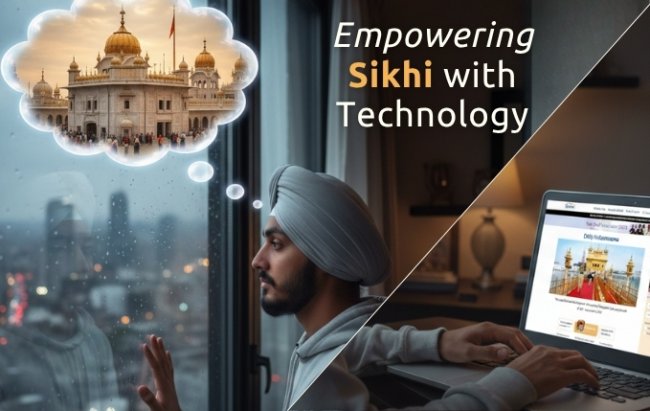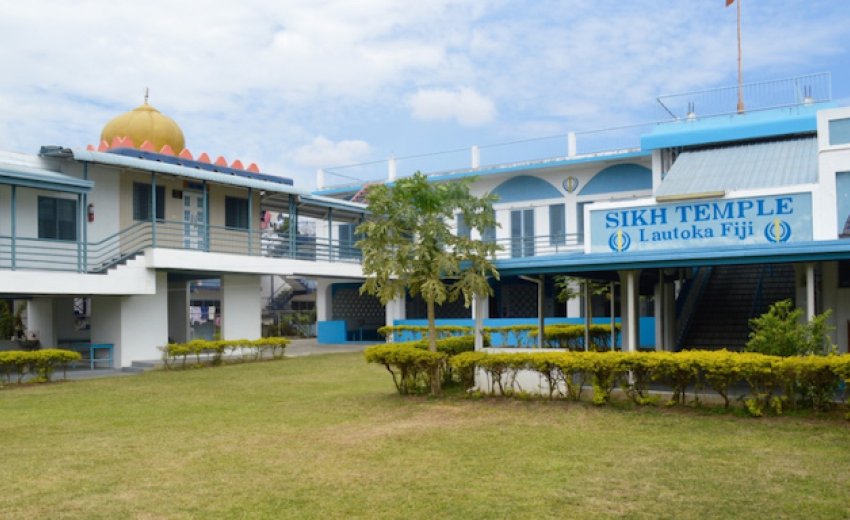In 2016, Khalsa College and Khalsa Primary in Ba, Fiji, reached an important milestone - their 50th anniversary. These schools, managed by the Sikh Educational Society of Fiji, celebrated this golden jubilee with a week of special events. This achievement highlights the long-standing commitment of the Sikh community to education in Fiji.
The Sikh community has established other Khalsa schools in Fiji as well. There are two in Labasa and one in Sigatoka, called the Nadiri Bay Khalsa Primary School. These schools often spark curiosity among non-Sikh Fijians about the meaning of 'Khalsa'. 'Khalsa' comes from the Urdu word 'khalis', meaning 'pure'. In Sikh culture, it refers to 'pure faith' or a 'pure person'. This concept is central to Sikh beliefs and practices.
Sikhism began with Guru Nanak (1469-1539). Later, Guru Gobind Singh (1660-1708) created the Khalsa Panth. This can be thought of as a group with both religious and military-like qualities. In 1699, at a gathering in Anandpur, Punjab, Guru Gobind Singh called on his followers to stand up against unfair treatment by rulers. He encouraged them to be brave, bold, and unafraid. He wanted them to become 'saint-soldiers' - people who were both spiritual and ready to defend themselves and others.
Since then, the Khalsa community has been known for its devotion, warrior spirit, and willingness to make sacrifices. Many Sikhs have given their lives for their beliefs, creating a legacy of courage and commitment. Guru Gobind Singh framed rules for those who wanted to follow the strict Khalsa way of life. One of these rules was to wear turbans and not cut their hair. These practices help Sikhs maintain their identity and remember their commitments.
Sikhs in Fiji
In many families in Fiji and abroad, the younger generations no longer keep turbans and uncut hair, but they still visit Sikh gurudwaras for prayers, listen to kirtan, and believe in the teachings of the Gurus. These individuals identify as Sikhs but do not strictly follow the traditional Khalsa classification.They maintain that by attending gurdwaras and Khalsa schools and colleges, they embody the Khalsa's fighting spirit to face modern challenges. While the term 'Khalsa' originally has religious significance, it is now used more broadly. For example, you might find businesses named Khalsa Shipping Company, Khalsa Store, and Khalsa Restaurant. This naming often signifies that the owners are part of the Sikh community. In Fiji, there are even roads named 'Khalsa'.
The Khalsa was established during the turbulent 17th century when Sikhs faced significant challenges. Over time, the Khalsa community has evolved, shaped by historical events. Today, the term 'Khalsa' is comprehensive and used in various contexts.
Despite being a minority, Fiji Sikhs have significantly contributed to the country's development since arriving in the late 1920s and early 1930s. Initially, they worked in Suva and Nausori, engaging in small-scale farming and running shops. As more Sikhs arrived from Punjab, particularly from the Jalandhar and Hoshiarpur districts, many began working as farmers in the Western districts. Over time, the Sikh community spread to all cane-producing areas, including Labasa, with notable concentrations in Mataniqara, Votua (Ba), Tagitagi (Tavua), Votualevu, Sabeto (Nadi), and Nadiri in Sigatoka.
Formation of Sikh Educational Society
The Sikh Educational Society was established in 1960 to oversee educational issues, while the Fiji Sikh Association focuses on religious and other community interests. Sports, social, and cultural groups thrive in all major towns. Bhangra and gidha dance forms have gained popularity among Sikhs and non-Sikhs alike due to their vibrant costumes and energetic movements. Punjabi songs also receive significant attention on local radio stations.
In politics, Sikhs are grouped with Fiji Indians and have actively participated in Fiji's political landscape. Some educated young Sikhs were elected to Parliament in the previous elections. Fiji Sikhs have built not only educational institutions but also Sikh temples in Suva, Nasinu, Lautoka, Ba, and Labasa. The Suva gurdwara, constructed in 1922, is the oldest of these.
The current Sikh population in Fiji is roughly estimated at 4,000. In the 1960s and 1970s, it was around 10,000, but many Sikhs migrated to Australia, New Zealand, the USA, and Canada in search of better opportunities. Those who have chosen to stay in Fiji are hardworking, honest, and dedicated citizens. During the silver jubilee celebrations of Ba Khalsa College and Khalsa Primary in 1984, the late Ratu Toganivalu, who was then the Deputy Prime Minister of Fiji, paid tribute to the Fiji Sikhs in his opening speech: “The Sikh community occupies an important niche among the farming population in this country. In fact the Sikh community of Fiji is mostly engaged in farming and it has made a valuable contribution to the economy of this country. The Sikhs are hard-working people.”
*Based on an article by Jogindar Singh Kanwal published in Sikh Sangat News on 12th April 2016

